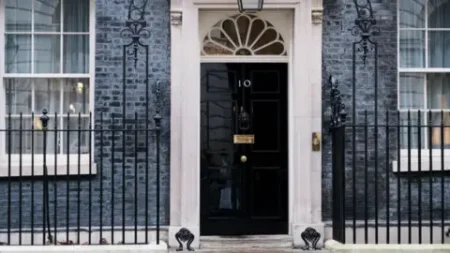In a groundbreaking move within British politics, Reform UK, led by Nigel Farage, has announced that the party will begin accepting donations in Bitcoin, marking it as the first political entity in the UK to embrace this cryptocurrency. This significant shift was unveiled by Farage at a cryptocurrency conference held in Las Vegas, where he emphasized the permanence of digital assets like Bitcoin. He expressed his conviction that cryptocurrencies are an integral part of the future economic landscape and are here to stay.
During his address, the charismatic reformist showcased a draft version of a proposed “Crypto Assets and Digital Finance Bill,” which he promises to implement if he is elected as Prime Minister. He stated emphatically, “Let’s recognize that crypto, Bitcoin, and digital assets are here to stay,” aligning his party with the evolving financial technologies that have gained prominence worldwide. Farage’s vision includes initiating what he termed a “crypto revolution” in the UK, aiming to harness the potential of these digital assets for economic transformation.
This announcement comes hand in hand with recent comments made by Chancellor Rachel Reeves, who indicated a desire to regulate cryptocurrencies to ensure stability and protect investors. Essentially, her goal is to turn the UK into a “world leader” in the management of cryptocurrency, as concerns over the volatility of digital assets grow among officials. Reform UK’s decision to accept Bitcoin donations was reflected on their website shortly after Farage’s speech, underscoring the party’s readiness to adapt to modern financial paths.
Moreover, the proposed legislation suggests a significant alteration in how cryptocurrencies are taxed, particularly advocating for a reduction in capital gains taxes on crypto assets from a maximum of 24% down to 10%. Additionally, Farage proposed the establishment of a “Bitcoin digital reserve” at the Bank of England, echoing the party’s commitment to integrate digital currencies into the UK’s financial framework more robustly. Farage’s ambitions to champion this cause were met with applause at the convention, illustrating strong support for his vision among attendees.
However, the excitement surrounding Farage’s proposals contrasts sharply with the scrutiny around cryptocurrency regulation in the UK. A recent Treasury Select Committee meeting led to calls for the government to treat cryptocurrencies similarly to gambling, reflecting apprehensions about their risk to investors who may face catastrophic losses. The Treasury’s position has been clear in rejecting the idea of regulating cryptocurrencies like gambling, which creates a complex narrative regarding how the UK government plans to approach this rapidly evolving sector.
Farage’s praise for the adoption of digital assets in the United States, where he referred to the situation as “nothing short of fantastic,” conveys his ambition to position London as a central hub for cryptocurrency trade globally. This vision aligns with broader trends observed in leading economies that recognize innovative financial practices. Notably, this move mirrors recent actions taken by Donald Trump’s campaign in the United States which successfully raised substantial funds through cryptocurrency donations for the upcoming 2024 presidential election.
With a political action committee reportedly amassing around $7.5 million in cryptocurrency for Trump, Farage’s decision appears both timely and strategic as political financing increasingly pivots toward modern digital platforms. As global awareness and acceptance of cryptocurrencies expand, political entities like Reform UK are carving out their positions within this burgeoning landscape, potentially reshaping the future of campaign financing and economic policy in the process.
In conclusion, Reform UK’s assertion of Bitcoin as a donation method represents a significant intersection of technology and politics, highlighting a broader narrative of adaptation among traditional political structures in response to digital innovation. Farage’s initiatives could pave the way for a new wave of political financing, altering how parties approach funding and fiscal policy in a digital era. The implications of these changes will likely resonate in the evolving discourse surrounding cryptocurrencies, regulation, and the future of political campaigning in the UK and beyond.











